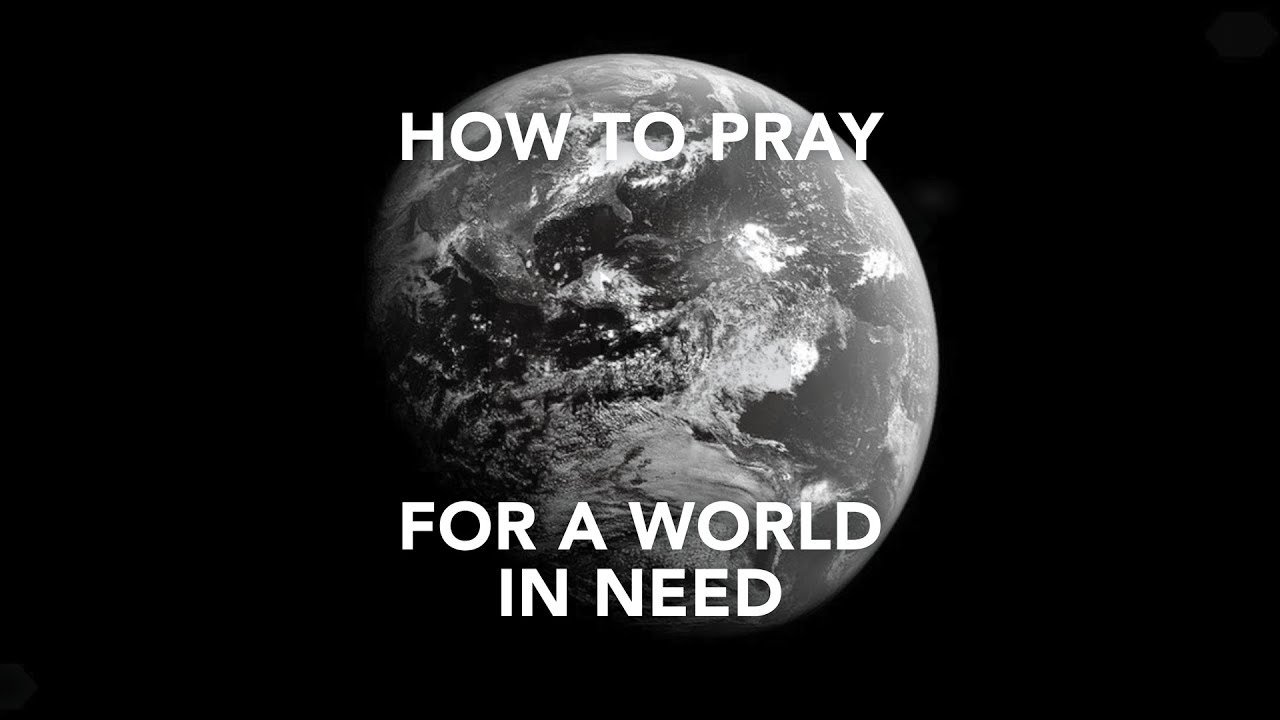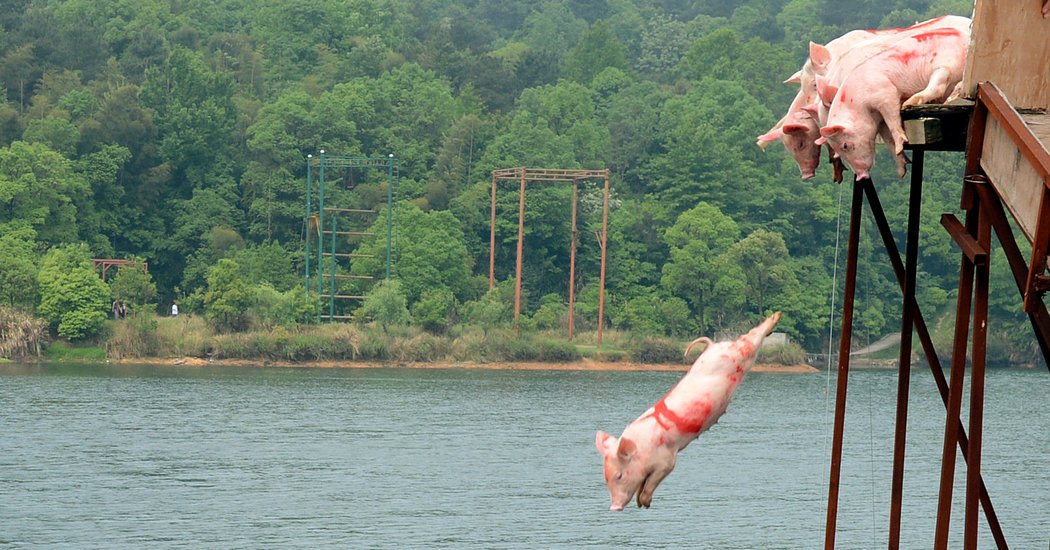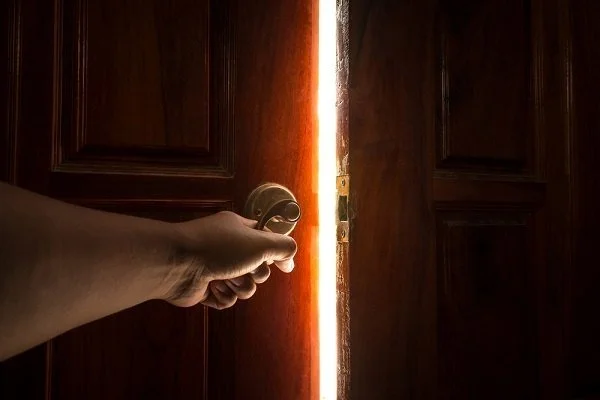
Tenth Sunday after Trinity
In today’s gospel, Luke 13:10-17, Jesus heals a woman who has been bent over and bowed down. The faith community are not happy with him because he healed her on the Sabbath. The Sabbath, Isaiah 58:9b-14 reminds us, is a day in which to delight in the Lord and the freedom we have received. For Christ, freedom is something we share: I cannot be truly free if you are not also free; injustice anywhere threatens justice everywhere. Christ points out, as Isaiah does, that we are often responsible for the burdens of others, and invites us all to be agents who share in the unbinding of others.

Ninth Sunday after Trinity
No easy summer reading for us this week. The prophet, Jeremiah (Jeremiah 23:23-29), and Jesus, (Luke 12:49-56), both promise us fire and division. This is not Christ, the bringer of peace, that we are used to. This feels like a much more Old Testament Christ, sending down the fire of punishment. The conflict that Jesus warns of is not, however, a punishment; he is merely describing the reality of a world in which some have power and prosperity and some do not. In such a world crisis (the baptism of fire which Jesus speaks of) reveals already existing divisions. Sadly, it often takes the fire of race riots to reveal the divisions of racism. It takes the crisis of refugees risking their lives on small boats and washing up on our shores to reveal the injustice of our immigration policies. The fire offered in this morning’s readings is a fire that reveals injustice, that offers us a chance to burn down existing inequalities. Yes, it is fire that destroys but also a fire that transforms.

Eighth Sunday after Trinity
Is enough ever enough?
In this week’s texts Abraham has been promised everything (Genesis 15:1-6), and Jesus’ followers have been promised the kingdom (Luke 12:32-40). But still they are behaving as if they do not have enough.They are acting out of a fear of scarcity.
In the midst of a cost of living crisis it is easy to do the same. But the advice given by God is “stop counting, start living”. The image of the thief in the night may seem like scaremongering, but it is really the opposite. Like the parable of the rich fool in last week’s gospel, its message is that all we need is right here before us.
Fear makes us look inward. To look outward we require both hope and trust.
Do we believe that life is about more than mere security? Can we risk behaving as if a different life is possible?


Seventh Sunday after Trinity
My word, how miserable are the characters in both our readings today! They are both successful, wealthy men, yet one, Ecclesiastes 1:2, 12-14, 2:18-23, bemoans the fact that others will benefit from his prosperity, and the other, Luke 12:13-21, the man who has been obsessed with hoarding his bounty, drops dead before enjoying any of it (exactly what the character in Ecclesiastes is afraid of!). The readings are NOT peddling the line that “money is the root of all evil”, but rather asking us what the point of plenty is. What is money for? Are our riches, talents and resources a source of anxiety or are they the way of bringing blessing and life to ourselves and others?

Sixth Sunday after Trinity
This week’s readings are both about prayer, or more accurately, our relationship with God. In Genesis 18:20-32 Abraham has an extraordinary exchange in which he argues with God about the nature of God’s justice; surely God would not punish the innocent for the actions of the guilty? Whereas in Luke 11:1-13 Jesus teaches his disciples how to pray. It is striking that in both passages the purpose of prayer is seen as advocacy on behalf of others: Abraham negotiating for the life of the inhabitants of Sodom, and in Luke the example of the ideal prayer of someone petitioning a neighbour for help in fulfilling the needs of a visitor. In neither case is the prayer a list of demands or requests. Prayer at heart is a relationship of trust. A relationship which changes us rather than God. If our prayers shape and form us into the likeness of Christ they will change us into a people whose deepest desire is the well-being of those in need.

Fifth Sunday after Trinity
Today’s readings both concern the role of those who serve, those whose unseen and unsung labours keep the world turning.
Our Old Testament reading, Genesis 18:1-10, is known as the “hospitality of Abraham”, but Abraham does precious little to provide for his guests. It is his elderly wife and unnamed servants who do all the work whilst Abraham is served with his guests. Sarah does not eat or sit with the guests; she does not even enter the tent. In contrast, in Luke 10:38-42, Mary sits at Jesus’ feet alongside the male disciples. What is also significant is that Martha, unlike Sarah, is given a voice. She can raise her concerns about the injustice of her role.
In our lives we are provoked to ponder who is listening to the voices of those whose essential work is often unseen and unsung? Who is inviting them into the conversation to make decisions about how our world and our future could be shaped?

Fourth Sunday after Trinity
I am guessing that we can all remember at least one sermon on the Good Samaritan, Luke 10:25-37. Maybe it was a school assembly teaching us to be kind, maybe it was Margaret Thatcher’s famous take on how the Samaritan had amassed wealth under a free market economy, which allowed him to be generous with his charity, or even Martin Luther King’s reflection that whilst the Priest and the Levite had thought about what would happen to them if they stopped to help the man in need, only the Samaritan thought about what would happen to the man if he didn’t stop to help him. In my humble opinion all of them missed the point that Jesus is trying to make. The scholar asks Jesus a question: who is my neighbour? He put himself in the story as the subject and the neighbour as the object. Jesus replies: who was a neighbour to the man in need? He makes the scholar the object not the subject. We are the ones in need of a neighbour. We are the ones in danger. This story that Jesus tells is like the parable of the lost sheep: if we are the 99 who do not go in search of the lost sheep, we are the ones who are in fact lost. Our first reading also switches the point of view, Amos 7:7-17: Amos is an Israelite, he is supposed (according to those in power) to prophesy for Israel and against Israel’s enemies: what if, Amos asks, Israel is its own enemy? As ever, both scriptures criticize us for judging and for assuming that we are the ones who have the right to decide who is worthy of inclusion and who is not. It’s a hard lesson but still, as Jesus says: go and do likewise.

Third Sunday after Trinity
It’s a busy day today: we are welcoming a new member of our church family, Harry, who is being baptised today, we are saying farewell to our beloved Nathan as he takes up his new job in Scotland AND we are celebrating Pride. Our reading for today tells the story of the healing of Naaman by the prophet Elisha, 2 Kings 5:1-14. This is an extraordinary story of a man who had great power, wealth and status who risked becoming a social outcast when he developed leprosy. Naaman is offered healing but is on the brink of refusing it because it involves wading into the river Jordan; a river which was used by everyone for everything. Something which offended his dignity. The wonderful thing about becoming part of God’s family is that everyone is included, everyone is invited. The appalling thing about God’s family is that … everyone is included, everyone is invited! Sadly, the Church of England still doesn’t reflect the inclusive and all embracing nature of God’s love. Thankfully this didn’t stop Nathan joining us and working with us to try and reflect that inclusivity here in Clapham, we shall miss him greatly. Naaman finally accepted the free gift that he was offered and was healed. Today we commit ourselves to accepting that gift: the gift of a love that values and embraces all God’s people, this is the family into which we welcome Harry with joy.

Evensong - cancelled
On Sunday 26 June at 6.30pm in church we shall hold our monthly Evensong service.

Second Sunday after Trinity
The readings don’t get any easier do they? Last week we had Jesus braving foreign lands, naked lunatics and suicidal pigs. This week he sets his face to Jerusalem, Luke 9:51-62, and warns his followers of hardship. He will have no place to lay his head, nowhere to call home. Similarly in 1 Kings 19:15,16,19-21 the prophet Elijah warns Elisha not to follow him. Elisha leaves his home to do just that. As an act of commitment to his chosen path, before he leaves Elisha slaughters his oxen, the symbol of his previous role as a farmer of the land. Today we would say that he is burning his bridges. It is not possible to have one foot in and one foot out of the kingdom of God. Importantly, Elisha cooks the oxen and offers the food to his people. What he has and who he is, is no longer for his use but is to serve the world God loves. Today’s readings encourage us to reflect on what we need to leave behind to follow God’s call to us.

First Sunday after Trinity
Naked lunatics, suicidal pigs and talking demons; what’s not to love in today’s Gospel story form Luke 8:26-39. Well, according to the first reading, Isaiah 65:1-9, quite a lot. Isaiah lambasts those who sit in tombs among pigs (both of which Jesus does in the story from Luke). These things are UNCLEAN, dirty, impure.
Yet Isaiah is really railing against religious hypocrisy, those who keep themselves apart from the mass of humanity and judge others, those who say: “Keep to yourself, do not come near me, for I am too holy for you.” Jesus doesn’t care about getting down and dirty with the “unholy”; he ventures boldly into the world of those who are seen as unfit for human company. The response is extraordinary: the townsfolk beg him to leave. We are not told why, but maybe because his act of radical inclusivity threatens the social hierarchy.
For those of us in the church today this passage is both an encouragement and a warning: encouraging us to leave our comfort zones and go to places unfamiliar, to embrace those who are different from us; warning us that to do so is not without consequences, and may not be welcomed by those firmly embedded in their comfort zones.

Festival Eucharist - Trinity Sunday
Such a short gospel reading for today: John 16:12-15.
Yet so complicated! I lose track of what on earth Jesus is saying: it moves from him to God to the spirit to us to him to spirit to God back to us again. Fittingly, the passage begins with Jesus telling us that he has much to tell us but we won’t get it! You don’t say!
This Sunday is Trinity Sunday, a day that has generated hymns about God’s nature being immortal, invisible, consubstantial, coeternal – I have no idea what we are supposed to get from any of these descriptions other than confused. At heart it is Jesus trying to explain love. But we can’t explain love, we feel it, we express it, we are transformed and changed by it, it shapes and moulds us, but we don’t understand it. What we do know is that once it starts it doesn’t stop, it doesn’t respect boundaries, or understand limits, it continues to generate more love.Thankfully we are not called to understand God, just to receive and to hand on the love that is given, and take our place in the great love story that is life.

Festival Eucharist on the Feast of Pentecost
Show us. Philip asks Jesus in John 14:8-17, show us God and we will be satisfied. Jesus rolls his eyes and shakes his head. You’ve been seeing God all this time when you have been seeing the power of God at work in me.
Jesus asks us to trust in works of love and justice. This is where we see God at work in the world.
This is still where we see God at work in the world. Christ’s promise to us is that the same divine power that lived in him can live in us.
This is the gift of Pentecost, the coming of the Holy Spirit.
It comes when we are together, together with one another, together in our concern for those in need in our world, together in our faith that God has the power to change the world in and through us.
Pentecost is our patronal festival at CHS; we are named for and dedicated to the Spirit of God. Today above all days we open ourselves to that unity with God, one another, and the world that allows the spirit to move through us.

Eastertide Parish Eucharist Seventh Sunday of Easter
This Sunday we mark Ascension Day. Our readings give us two accounts. In both Jesus gives his followers a task. It is not the task they had expected or wanted. In Acts 1:1-11 they ask him “is now the time when you will restore the kingdom to Israel?” They are still hoping for a victory of their side over and against the other side. Instead Jesus sends them out of their homeland to serve people other than their own. In the gospel version, Luke 24:44-53, Jesus tells his followers, we began in Jerusalem, we began at home, but you are to go to all nations. This is not just a change in scope, it is a change in the nature of their mission. They must let go of previous ideas of who they are (and who God is) and embrace a much broader vision. The image this week expresses something of the surprise they feel.


Eastertide Parish Eucharist Sixth Sunday of Easter
On leaving his disciples Jesus tells them not to be troubled or afraid, John 14:23-29. Easy to say but not easy to do either for them nor for us today. Then as now, however, human beings find themselves able to survive and thrive in the most troubling and frightening of situations. Two things that support such resilience is a sense of purpose and the support of those around us. When we have a sense of purpose, we are no longer passive; we have a role to play. Jesus tells us our role: the peace that he is leaving with us. This is not the peace that the world gives, the peace of the Pax Romana that was imposed by force, but a peace built of justice, a peace in which everyone could be at home in the world. In our first reading, Acts 16:9-15, a foreign woman in a new home does just this for Paul and his companions when they come to a new city. Lydia, having experienced being away from home, opens her home to others. She is, in her own small way, building peace. A peace built by a thousand tiny actions which seek to open the world for others.

Eastertide Parish Eucharist Fifth Sunday of Easter
Today we are holding our Annual Parish Church Meeting. This is the meeting at which we elect those who will serve us and the community for the coming year. We will also be receiving the Annual Report. This is a long old document, but a number of us will be speaking (very briefly) about some of the work undertaken by the church in the past year. It’s a time to give thanks for all that we have done and been together, to show our gratitude for those who have served us, and to commit to supporting and upholding those who will serve us in the year ahead. The reading this week is blessedly short, John 13:31-35. This is part of Jesus’ farewell to his friends and disciples. He tells us that we cannot go with Him; our job is to stay here and carry on His work. We do this by loving one another. The love we have for one another and for the community we serve and the wider world in which we live is not a feeling of warmth or affection. For Christ love is not a noun, a state of being; it is verb, an active commitment we undertake. Getting stuck into the mess and challenge of working together is what builds up this love and gives us the energy and courage to act in love in all areas of our life.

Eastertide Parish Eucharist Fourth Sunday of Easter
Today is good Shepherd Sunday, the Sunday when we focus on what makes a good leader and how we too can be good leaders, nurturing those in need of our care.
The people of Israel always assumed that they were a special flock set apart from others. In our gospel reading, John 10:22-30, Jesus re-defines what it means to be the sheep who belong to God; it means responding to his voice, to listen and discern and then … to grow into being shepherds ourselves.
This week Good Shepherd Sunday falls during Christian Aid week: a good time to remind ourselves that we are not called to stay in the safety of our own flock, but to follow the voice of the one who calls us to embrace and include, to nurture and feed, to seek and to find, all God’s children, that all may be gathered into one flock.
In our fist reading, Acts 9:36-43, we hear the story of Tabitha, not an apostle, not a deacon, just part of the flock whose life was spent shepherding others: providing for those on the margins, drawing the most vulnerable into the family of God.

Eastertide Parish Eucharist Third Sunday of Easter
Both of this week’s readings are about the perpetual hope of a new beginning, a starting over, life springing forth anew. In Acts 9:1-20 we hear about Saul, a fierce persecutor of Christ, who turns around and becomes Paul, giving the rest of his life taking Christ to others. But Paul’s change is a painful one, he is thrown into blindness and dependency. New life is not without cost, letting go of our old life can feel like loss. We can only let go if we take a risk; in our gospel, John 21:1-19, we witness the disciples struggle to trust that the one who greets them and feeds them is Christ. Around the fire Christ asks Peter three times whether he trusts him, echoing the three times that he denied Christ around the fire before Christ’s death. Our weakness & our failure do not need to be the last word. However many times we fall, the call will come again.
